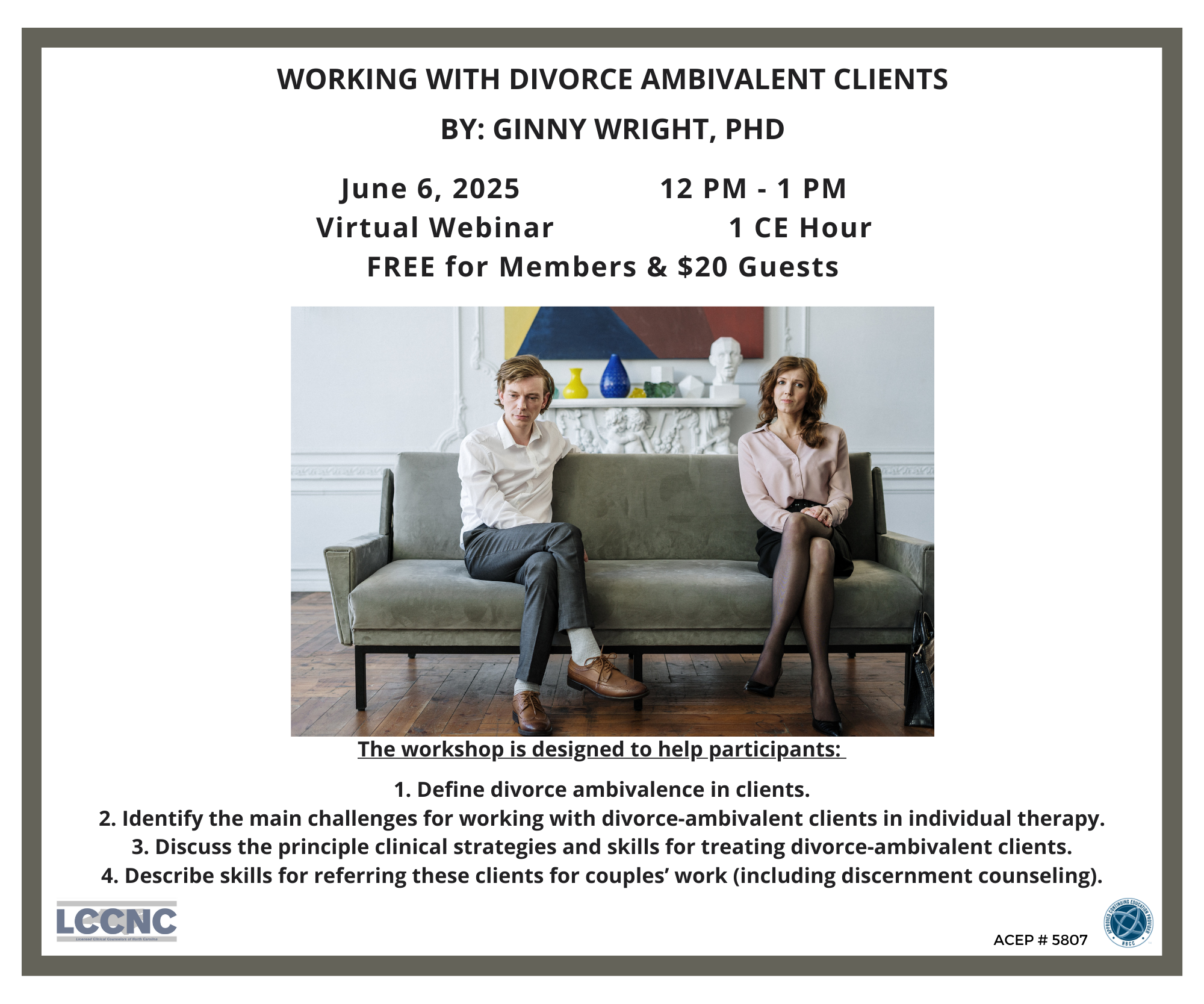12:00 PM - 1:00 PM Eastern
Research supports the long-held observation that thoughts of ending a marriage are common, and that people often remain ambivalent about divorce well into the legal process of martial dissolution. Divorce ambivalence is a frequent topic in therapy, even when it is not among presenting problems, yet graduate training programs do not necessarily provide training on how to intervene with clients struggling with divorce ambivalence. In fact, recent research suggests that individual (and couples) therapists may often resort to relationship-undermining statements when clients discuss problems in their marriage.
An important step for psychologists and other mental health professionals is to understand the unique interaction patterns common to couples in crisis and some of the common clinical challenges to expect. Likewise, we know that many of these couples come with a “mixed agenda” such that only one partner is strongly favoring divorce. In these situations, it is important to recognize and respond to the unique needs of the spouse who is leaning out of the marriage. Therapeutic response may be different in those situations where the dissatisfied spouse is describing “hard reasons” for wanting a divorce (e.g., abuse, addictions, affairs) versus “soft reasons” (all others, including poor communication, feeling distant, etc.)
A common therapeutic mistake in mixed agenda couples who are on the brink of divorce is to initiate couples therapy when one spouse is not committed to trying to fix the marriage. Discernment Counseling is an increasingly accepted alternative for these couples. The short-term, highly focused intervention seeks to help couples gain clarity and confidence in their decision making about the path for their marriage.
This educational workshop provides valuable strategies for identifying divorce ambivalence and for addressing the challenges therapists face when indecision about marriage presents in therapy. Participants learn methods of assessing and treating clients who are divorce-ambivalent and "leaning out" of their marriage versus those who are "leaning into" their marriage. Finally, the workshop introduces discernment counseling as a promising process for couples experiencing divorce ambivalence and provides guidance for recognizing individuals and couples who would benefit from discernment counseling.

